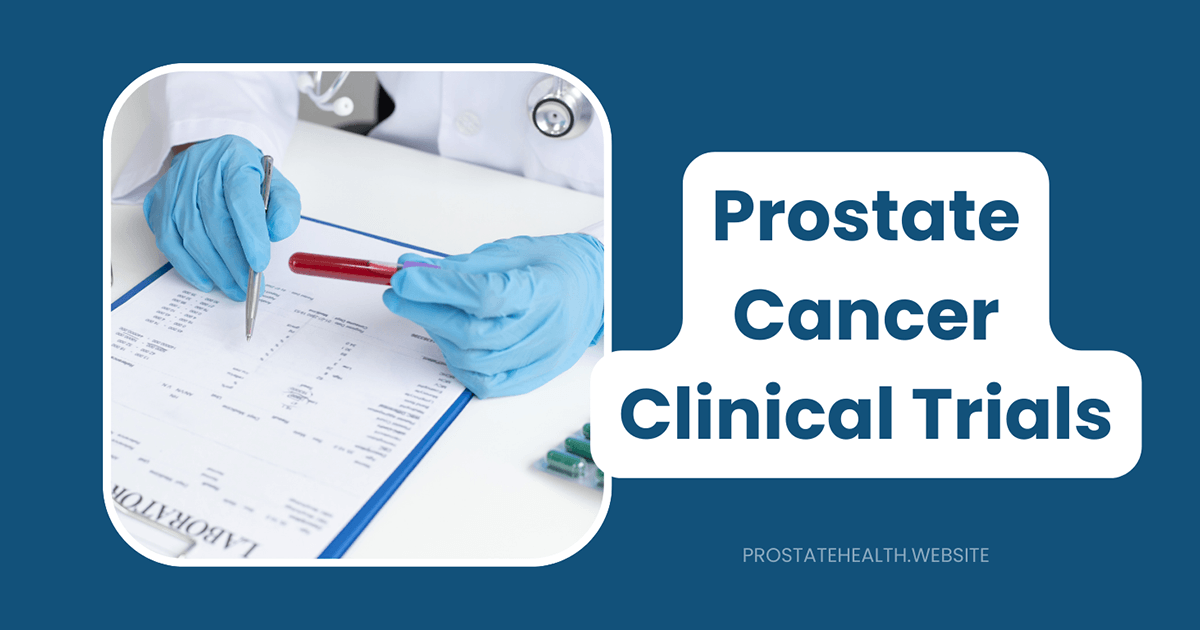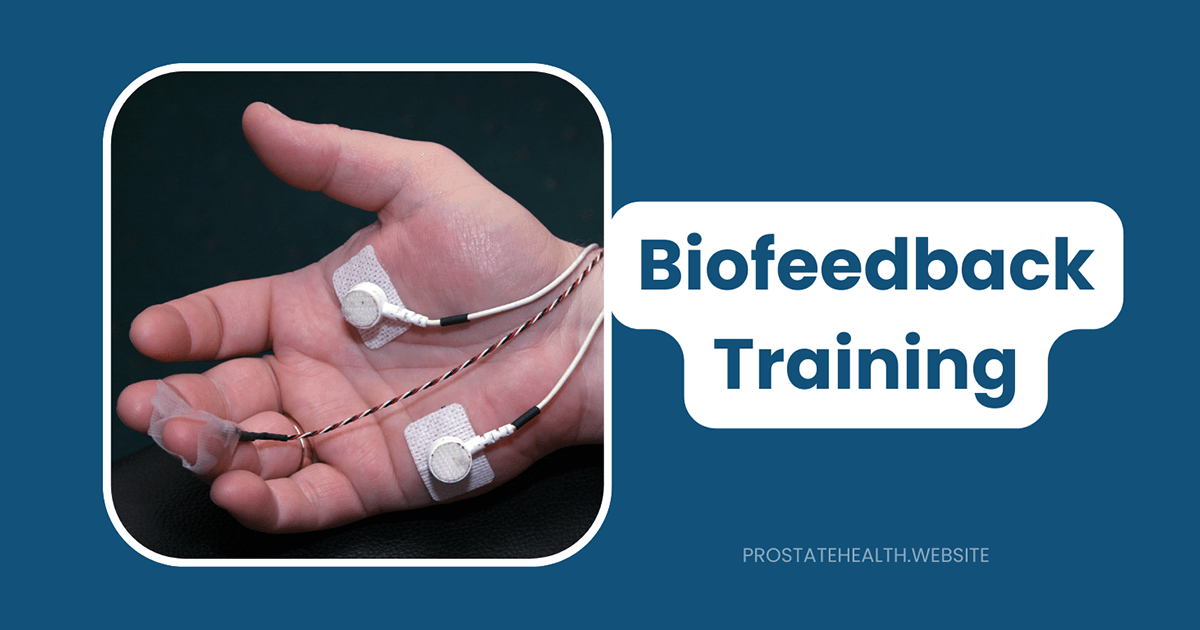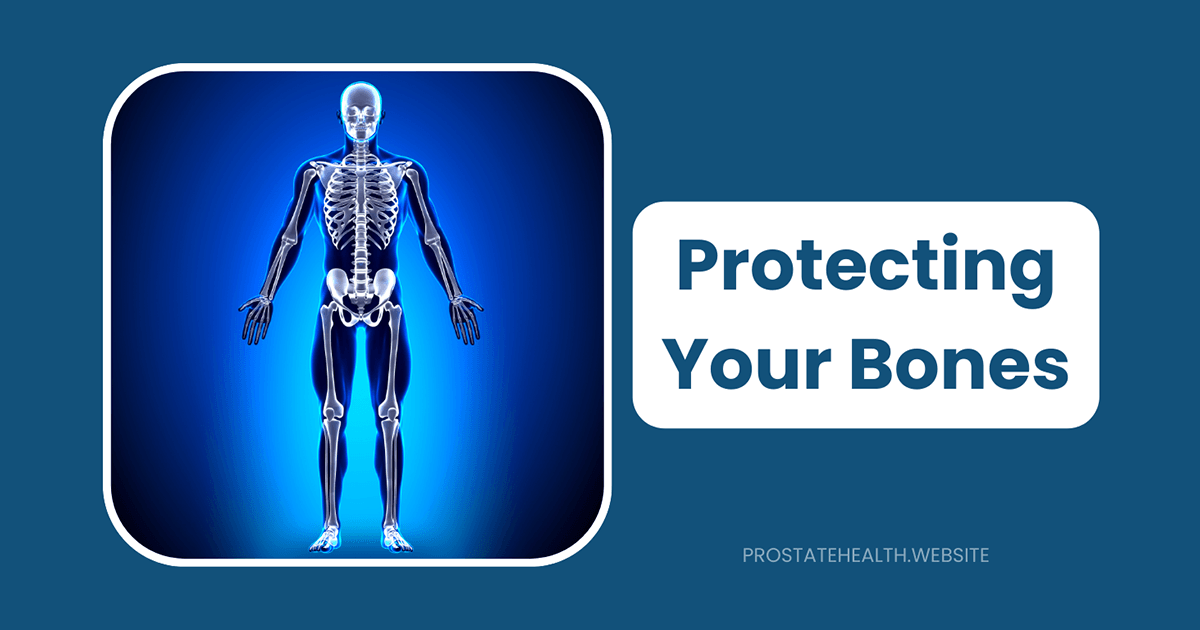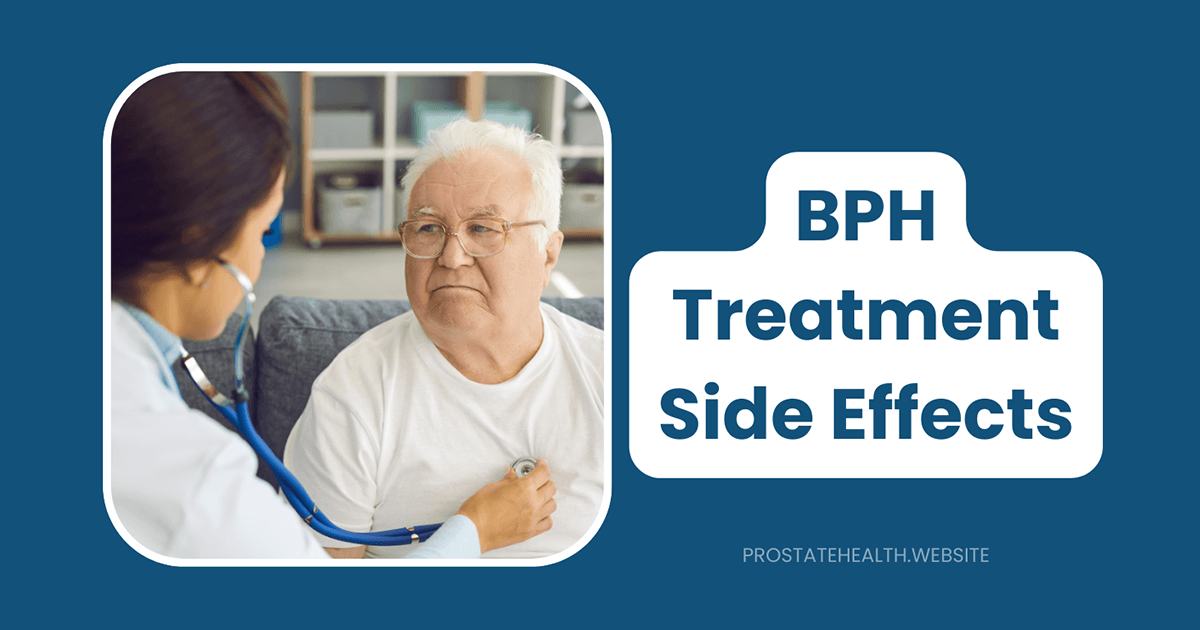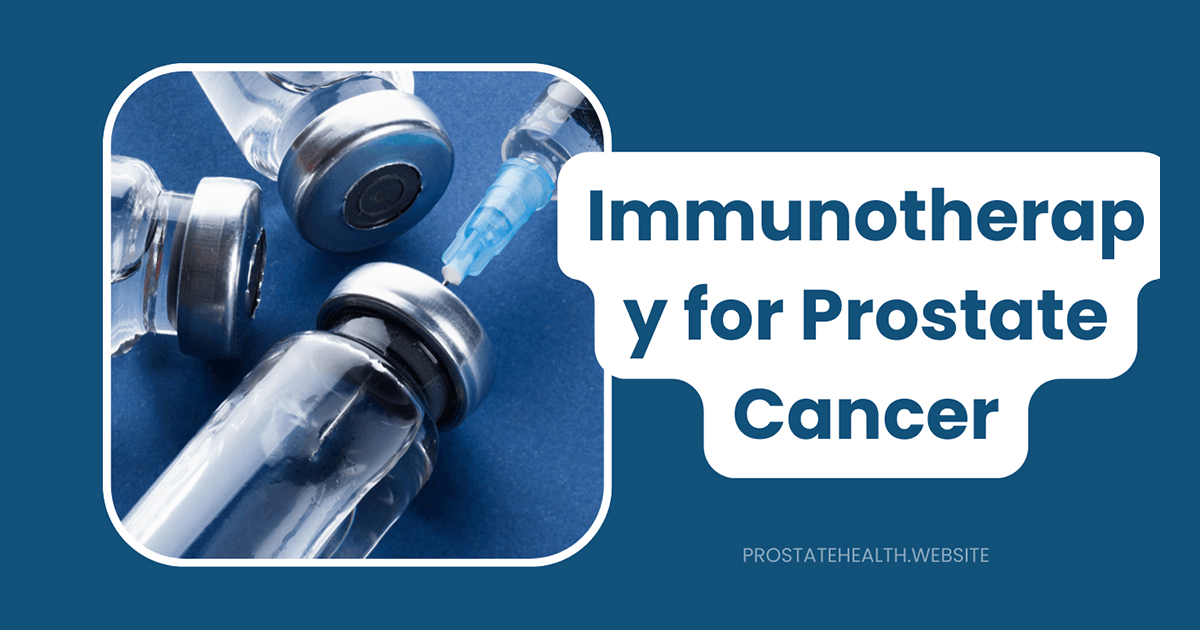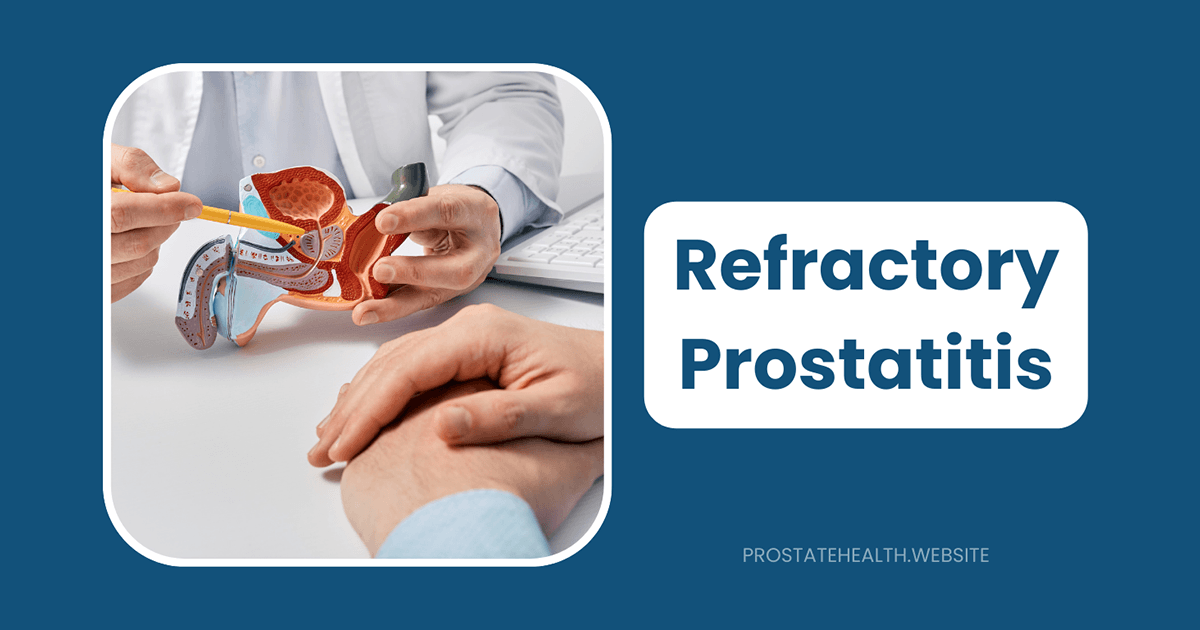Hormone Therapy for Prostate Cancer: How It Works and What to Expect
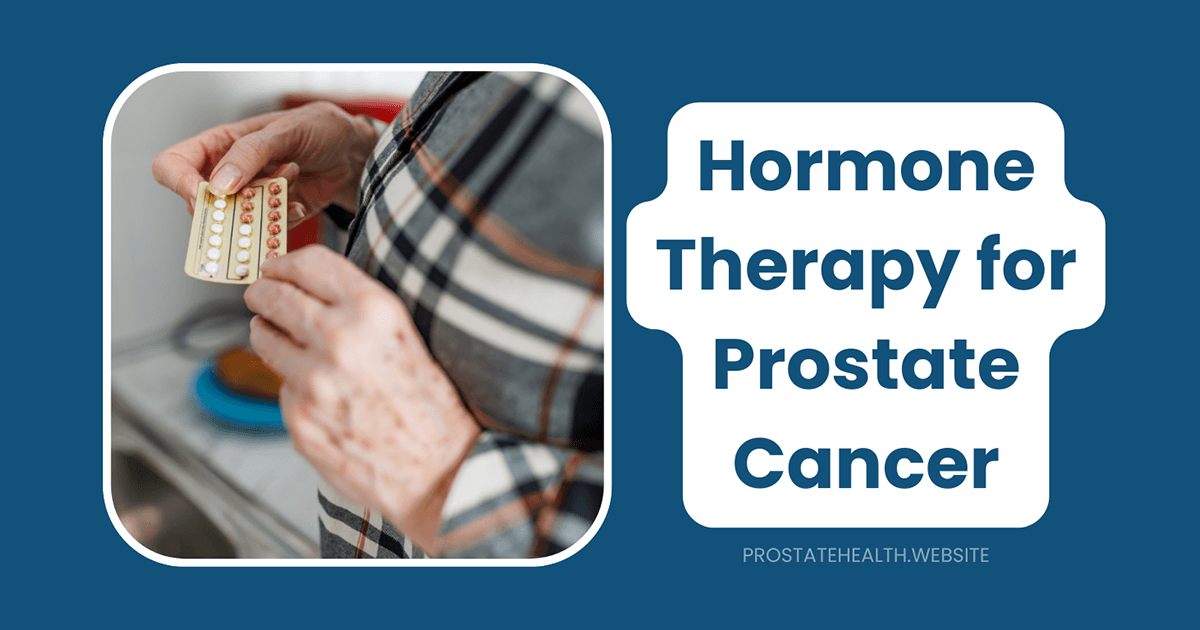
When facing prostate cancer, understanding your treatment options is crucial for making informed decisions about your care. Among these options, hormone therapy—also known as androgen deprivation therapy (ADT)—plays a vital role in the treatment arsenal against prostate cancer.
As someone who has spent years advocating for men’s prostate health, I’ve seen how hormone therapy can be both a lifeline and a source of concern for many patients. The treatment can effectively slow or stop cancer growth, but it also comes with side effects that can significantly impact quality of life.
In this comprehensive guide, we’ll explore how hormone therapy works, when it’s used, the various types available, what to expect during treatment, and strategies for managing side effects.
Understanding the Hormone-Prostate Cancer Connection
To understand how hormone therapy works, it’s important to first grasp the relationship between hormones and prostate cancer.
The Role of Androgens in Prostate Cancer
Prostate cancer cells, like normal prostate cells, depend on male hormones (androgens) to grow and function. Testosterone, produced primarily in the testicles, is the main androgen in men. When testosterone enters prostate cells, it’s often converted to dihydrotestosterone (DHT), an even more potent form of the hormone.
These androgens bind to androgen receptors in prostate cancer cells, activating genes that stimulate cell growth and division. For many prostate cancers, especially in the early stages, this hormonal stimulation is like fuel for a fire—remove the fuel, and the fire dies down or goes out completely.
According to the National Cancer Institute, hormone therapies work by either decreasing androgen levels or blocking androgen action, inhibiting the growth of prostate cancers that rely on these hormones.
The Science Behind Hormone Therapy
Hormone therapy works through two main mechanisms:
- Reducing testosterone production: By lowering testosterone levels in the body, hormone therapy deprives prostate cancer cells of the androgens they need to grow.
- Blocking testosterone action: Even if some testosterone is present, certain hormone therapies can prevent it from binding to androgen receptors in prostate cancer cells, essentially making the cancer cells “deaf” to testosterone’s growth signals.
When deprived of androgens, prostate cancer cells typically respond in one of three ways:
- They stop growing
- They undergo programmed cell death (apoptosis)
- They adapt to grow without androgens (becoming castration-resistant)
The goal of hormone therapy is to maximize the first two responses while delaying the third for as long as possible.
Types of Hormone Therapy for Prostate Cancer
Several approaches to hormone therapy are available, each working in slightly different ways:
Treatments That Lower Testosterone Levels
1. Luteinizing Hormone-Releasing Hormone (LHRH) Agonists
How they work: LHRH agonists trick the pituitary gland into shutting down signals that normally tell the testicles to make testosterone. After an initial surge in testosterone (called a “flare”), levels drop dramatically.
Common medications:
- Leuprolide (Lupron, Eligard)
- Goserelin (Zoladex)
- Triptorelin (Trelstar)
- Histrelin (Vantas)
Administration: Typically given as injections or implants every 1, 3, 4, 6, or 12 months, depending on the specific drug and formulation.
2. LHRH Antagonists
How they work: Similar to LHRH agonists but work more quickly and don’t cause the initial testosterone flare.
Common medications:
- Degarelix (Firmagon) – administered as a monthly injection
- Relugolix (Orgovyx) – taken as a daily pill
Advantage: Testosterone levels drop within days rather than weeks, making these drugs particularly useful when rapid hormone suppression is needed.
3. Surgical Castration (Orchiectomy)
How it works: Surgical removal of the testicles, which produce about 90-95% of the body’s testosterone.
Advantages:
- One-time procedure
- Immediately effective
- No need for ongoing medication
- Often less expensive in the long run
Considerations: Permanent and irreversible, which may have psychological impacts for some men.
Treatments That Block Testosterone Action
1. First-Generation Anti-Androgens
How they work: Block testosterone from binding to androgen receptors in prostate cancer cells.
Common medications:
- Bicalutamide (Casodex)
- Flutamide (Eulexin)
- Nilutamide (Nilandron)
Uses: Often used alongside LHRH agonists to block the effects of the initial testosterone flare or as part of combined androgen blockade.
2. Next-Generation Anti-Androgens
How they work: More potent androgen receptor blockers that can work even when first-generation drugs fail.
Common medications:
- Enzalutamide (Xtandi)
- Apalutamide (Erleada)
- Darolutamide (Nubeqa)
Advantage: These newer drugs can be effective even in castration-resistant prostate cancer.
3. Androgen Synthesis Inhibitors
How they work: Block the production of androgens not just from the testicles but from other sources like the adrenal glands and the tumor itself.
Common medication:
- Abiraterone acetate (Zytiga)
Administration: Taken as a pill, usually with prednisone to prevent certain side effects.
When Is Hormone Therapy Used?
Hormone therapy can be used in several scenarios:
For Localized Prostate Cancer
- With radiation therapy: Hormone therapy is often used before, during, and/or after radiation therapy for intermediate or high-risk localized prostate cancer. It can shrink the prostate, making radiation more effective, and may improve survival rates.
- Before surgery: Sometimes used to shrink the tumor before radical prostatectomy, though this is less common.
For Recurrent Prostate Cancer
- Rising PSA after surgery or radiation: If PSA levels begin to rise after primary treatment, indicating cancer recurrence, hormone therapy may be recommended.
For Advanced or Metastatic Prostate Cancer
- As primary treatment: For cancer that has spread beyond the prostate, hormone therapy is often the backbone of treatment.
- With other treatments: Increasingly, hormone therapy is being combined with chemotherapy, immunotherapy, or newer hormonal agents for metastatic disease.
According to the latest guidelines from the National Cancer Institute, combination therapies are now recommended over single-drug approaches for metastatic hormone-sensitive prostate cancer. A 2025 report indicated that combining androgen deprivation therapy with androgen receptor pathway inhibitors (ARPIs) such as abiraterone, enzalutamide, or darolutamide provides a “one-two hit” against hormone-sensitive cancer cells.
For Palliative Care
- Symptom relief: In advanced cases, hormone therapy can help relieve symptoms like bone pain from metastases.
What to Expect During Hormone Therapy
Understanding what to expect can help you prepare for hormone therapy and manage its effects on your body and daily life.
Before Starting Treatment
Before beginning hormone therapy, you’ll typically undergo:
- Baseline tests: Including PSA level, testosterone level, bone density scan, and possibly cardiac evaluation
- Discussion of goals: Understanding whether the treatment is curative, adjuvant, or palliative
- Review of options: Discussing which type of hormone therapy is most appropriate for your situation
- Side effect management planning: Strategies to prevent or minimize potential side effects
During Treatment
The treatment experience varies depending on the type of hormone therapy:
For LHRH Agonists/Antagonists:
- Regular injections (monthly, every 3-6 months, or yearly)
- Monitoring of PSA and testosterone levels
- Management of side effects
For Oral Medications:
- Daily pill regimen
- Regular blood tests to monitor liver function and other parameters
- Potential drug interactions to monitor
For Orchiectomy:
- One-time outpatient surgical procedure
- Brief recovery period (typically 1-2 weeks)
- Follow-up PSA monitoring
Monitoring Treatment Effectiveness
Your doctor will monitor how well the hormone therapy is working through:
- PSA tests: A declining PSA usually indicates the treatment is working
- Testosterone levels: Confirming that testosterone has reached “castrate” levels (typically <50 ng/dL)
- Imaging: Periodic scans to assess tumor response
- Symptom assessment: Improvement in cancer-related symptoms
Side Effects of Hormone Therapy and How to Manage Them
Hormone therapy can cause a range of side effects due to the reduction in testosterone. According to Prostate Cancer UK, up to 80% of men on LHRH agonists experience hot flushes, and many experience other significant side effects.
Common Side Effects and Management Strategies
Hot Flushes and Night Sweats
What to expect: Sudden feelings of warmth, often with sweating and reddening of the face and upper body.
Management strategies:
- Layered clothing that can be easily removed
- Avoiding triggers like alcohol, caffeine, and spicy foods
- Medications like megestrol acetate or certain antidepressants if severe
- Acupuncture, which has shown benefit in some studies
Sexual Changes
What to expect: Decreased libido, erectile dysfunction, reduced or absent ejaculation, and smaller genitals.
Management strategies:
- Open communication with your partner
- Erectile dysfunction treatments (medications, vacuum devices, injections)
- Counseling or sex therapy
- Focus on intimacy beyond intercourse
Fatigue
What to expect: Persistent tiredness that isn’t relieved by rest.
Management strategies:
- Regular physical activity (paradoxically, exercise helps combat fatigue)
- Energy conservation strategies
- Good sleep hygiene
- Treating anemia if present
Body Composition Changes
What to expect: Decreased muscle mass, increased body fat (especially around the abdomen), and weight gain.
Management strategies:
- Resistance training to maintain muscle mass
- Regular aerobic exercise
- Dietary modifications to manage weight
- Working with a nutritionist
Bone Health Issues
What to expect: Decreased bone density, potentially leading to osteoporosis and increased fracture risk.
Management strategies:
- Calcium and vitamin D supplementation
- Weight-bearing exercise
- Bone-strengthening medications (bisphosphonates, denosumab)
- Regular bone density scans
Metabolic Changes
What to expect: Increased risk of diabetes, elevated cholesterol, and cardiovascular issues.
Management strategies:
- Regular monitoring of blood glucose and lipid levels
- Heart-healthy diet
- Regular exercise
- Medications if necessary
Cognitive and Emotional Effects
What to expect: Memory issues, difficulty concentrating, mood changes, and potential depression.
Management strategies:
- Mental exercises and cognitive activities
- Stress reduction techniques
- Support groups
- Psychological counseling
- Antidepressants if needed
Emerging Approaches and Research
The field of hormone therapy for prostate cancer continues to evolve, with several exciting developments on the horizon:
Intermittent Hormone Therapy
Rather than continuous treatment, intermittent therapy involves cycles of treatment followed by breaks when testosterone is allowed to recover. This approach aims to reduce side effects while maintaining cancer control.
According to the Mayo Clinic, intermittent dosing may reduce side effects without affecting long-term survival and could improve quality of life.
Personalized Treatment Selection
Recent research presented at the 2025 ASCO GU Annual Symposium suggests that different androgen receptor pathway inhibitors (ARPIs) may be more effective depending on disease characteristics:
- For high-volume disease, the ranking by effectiveness was: abiraterone, enzalutamide, apalutamide, and darolutamide
- For low-volume disease, the ranking was: darolutamide, enzalutamide, apalutamide, and abiraterone
This suggests that treatment selection could be tailored based on specific disease characteristics.
Novel Combinations
A phase 1/1b trial presented at ASCO GU 2025 is investigating a novel combination of neoadjuvant darolutamide and relugolix preceding radical prostatectomy for high-risk localized and locally advanced prostate cancer. This combination pairs an oral androgen receptor inhibitor with an oral LHRH antagonist that has a rapid onset of action.
New Drugs for Hormone-Resistant Cancer
A promising new drug called NXP800 is being tested for its potential to treat advanced prostate cancer that has stopped responding to hormone therapy. Laboratory tests show that NXP800 slowed the growth of prostate cancer cells, including those resistant to enzalutamide, potentially offering a new treatment avenue for men whose cancer has developed resistance to existing hormone therapies.
Making Informed Decisions About Hormone Therapy
If you’re considering hormone therapy for prostate cancer, here are some important steps to take:
Questions to Ask Your Doctor
- About the treatment:
- Which type of hormone therapy do you recommend for me and why?
- How will we know if the hormone therapy is working?
- How long will I need to be on hormone therapy?
- Is intermittent hormone therapy an option for me?
- About side effects:
- What side effects am I most likely to experience?
- What can be done to prevent or minimize these side effects?
- Are there any side effects that should prompt me to call you immediately?
- About lifestyle:
- How will hormone therapy affect my daily life?
- What lifestyle changes might help me during treatment?
- Can I continue to work/exercise/travel during treatment?
Preparing for Treatment
- Baseline health measures:
- Consider a bone density scan before starting
- Have baseline cardiovascular assessment
- Discuss sexual function preservation options
- Lifestyle preparations:
- Begin or maintain an exercise program
- Consult with a nutritionist about dietary strategies
- Consider joining a support group
- Practical preparations:
- Arrange transportation for appointments if needed
- Prepare for potential work accommodations
- Discuss the treatment plan with close family members
Living Well During Hormone Therapy
While hormone therapy presents challenges, many men find ways to maintain a good quality of life during treatment:
Physical Well-being
- Exercise regularly: Aim for at least 150 minutes of moderate exercise weekly, including both aerobic and resistance training
- Maintain a healthy diet: Focus on plant-based foods, lean proteins, and healthy fats
- Prioritize sleep: Practice good sleep hygiene and address sleep disturbances
- Manage pain and discomfort: Work with your healthcare team to address specific symptoms
Emotional Well-being
- Acknowledge your feelings: It’s normal to experience a range of emotions during treatment
- Seek support: Consider professional counseling or support groups
- Practice stress reduction: Techniques like meditation, deep breathing, or yoga can help
- Maintain social connections: Stay engaged with family and friends
Practical Considerations
- Financial planning: Understand insurance coverage and potential out-of-pocket costs
- Work accommodations: Discuss flexible arrangements if needed
- Daily routine: Establish routines that accommodate treatment schedules and side effects
The Future of Hormone Therapy
The landscape of hormone therapy for prostate cancer continues to evolve rapidly. According to a study examining treatment patterns from 2017 to 2023, the use of combination hormonal therapy with androgen receptor pathway inhibitors increased from 13% in 2017 to 47% in 2023, reflecting the impact of clinical evidence on treatment practices.
As research advances, we can expect:
- More targeted therapies with fewer side effects
- Better predictive markers to guide treatment selection
- Improved strategies for overcoming hormone resistance
- Enhanced supportive care to manage side effects
Conclusion: Balancing Benefits and Challenges
Hormone therapy remains a cornerstone of prostate cancer treatment, offering effective cancer control for many men. While the side effects can be significant, advances in management strategies and supportive care have improved the treatment experience.
The decision to pursue hormone therapy should be made after careful consideration of your specific cancer characteristics, overall health, personal preferences, and quality of life goals. By working closely with your healthcare team and taking an active role in managing your treatment, you can maximize the benefits while minimizing the impact on your daily life.
Remember that every man’s experience with hormone therapy is unique. What works for one person may not work for another, and treatment plans often need adjustment over time. Stay informed, communicate openly with your healthcare providers, and don’t hesitate to advocate for your needs throughout the treatment journey.
Have you or a loved one experienced hormone therapy for prostate cancer? What strategies helped you manage the treatment? Share your experiences in the comments below to help others navigating this journey.

